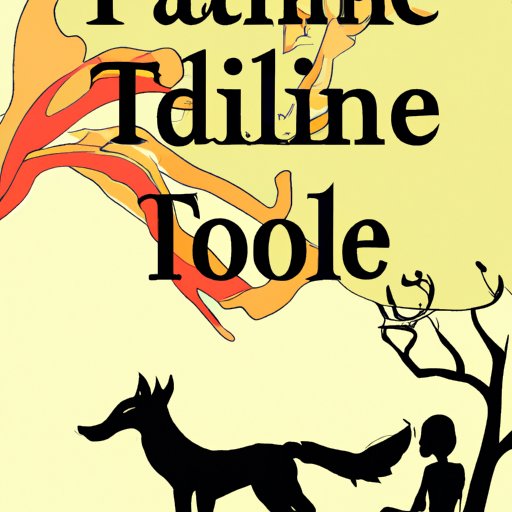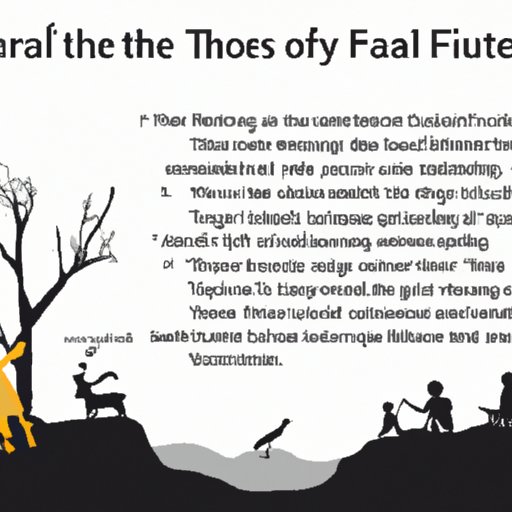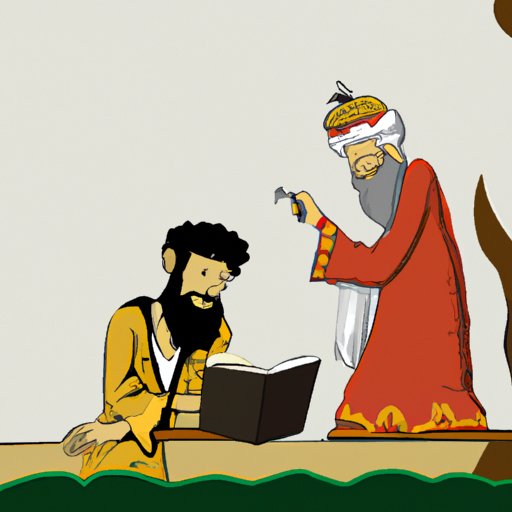Introduction
Folktales are stories that have been passed down from generation to generation, often orally, and are a part of many cultures around the world. They are stories that contain elements of fantasy, myth, and legend and can be used to teach lessons or impart wisdom. From ancient times to the present day, these stories have evolved and adapted to fit different contexts and cultures. In literature, folktales have been used to tell stories in various ways, from allegories to parables.

Exploring the Role of Folktales in Modern Literature
In recent years, folktales have become increasingly popular in literature. Authors have been inspired by the themes, motifs, and characters found in traditional folktales and have used them to create new works of fiction. This has led to a resurgence of interest in folktales and an appreciation for their value in literature. Today, folktales are being interpreted and appreciated in different ways than ever before.
The impact of folktales on modern literature is evident in a variety of genres. Authors are using these stories to explore themes such as family, identity, morality, and faith. Folktales are also being used to create compelling narratives that draw readers in and keep them engaged. As a result, folktales have become an important part of literature today.

How Folktales Influence Storytelling and Narrative Structures
Folktales have had a profound influence on the way stories are told. Many of the tropes and conventions found in modern literature can be traced back to folktales. For example, the use of motifs, symbols, and archetypes are common in folktales, and these same elements can be seen in today’s literature.
Folktales also shape the structure of stories. Many folktales follow a traditional narrative arc, with a beginning, middle, and end. This structure has been adopted by modern authors and used to craft engaging stories. In addition, folktales often contain elements of surprise or suspense, which can be used to create tension and add excitement to a story.
Examining the Themes Found in Folktales and Their Impact on Literature
Folktales often contain universal themes that can be found in literature throughout history. These themes include courage, resilience, perseverance, and justice. By exploring these themes, authors can create stories that resonate with readers and provide meaningful insights into the human experience.
The themes found in folktales also have a lasting impact on literature. Authors often draw inspiration from these stories, incorporating them into their own works. As a result, the themes found in folktales remain relevant in modern literature and continue to shape the way stories are told.

Analyzing the Cultural and Religious Significance of Folktales
Folktales have played an important role in many cultures and religions throughout history. They have been used to teach lessons, impart wisdom, and pass down traditions from one generation to the next. By examining the cultural and religious origins of folktales, we can gain a better understanding of their deeper meaning.
From an anthropological perspective, folktales can provide insight into the beliefs and values of a particular culture. They can also reveal the spiritual and moral codes that guide a society. By analyzing the cultural and religious significance of folktales, we can gain a greater appreciation for their importance in literature.
Investigating the Connection Between Folktales and Fairy Tales
Folktales and fairy tales have long been intertwined in literature. Both genres tell stories filled with magical creatures, heroic characters, and exciting adventures. However, there are some distinct differences between the two. Fairy tales tend to focus more on romance and happy endings, while folktales often contain darker themes and moral lessons.
Despite their differences, both genres have been used to tell captivating stories. Authors have drawn upon the conventions and tropes found in both folktales and fairy tales to create unique works of fiction. As a result, these genres remain popular in literature today.
Uncovering the Universal Appeal of Folktales in Literature
Folktales have been used in literature for centuries, and their popularity shows no sign of waning. There is something timeless and universal about these stories that continues to capture the imagination of readers. Whether they are exploring themes of courage or justice, folktales remain relevant in literature today.
The power of folktales lies in their ability to evoke emotion and inspire reflection. By examining the themes, motifs, and characters found in these stories, authors can create works of fiction that are both entertaining and thought-provoking. Thus, it is clear why folktales remain so popular in literature.
Conclusion
Folktales have been an integral part of literature for centuries, and their influence can still be felt today. From shaping storytelling techniques to exploring universal themes, folktales have had a lasting impact on literature. They have also provided insight into the cultural and religious beliefs of societies around the world. Finally, folktales and fairy tales have been used to tell captivating stories, demonstrating their timeless appeal.
It is clear that folktales are an essential part of the literary canon. By examining their impact on storytelling, themes, and cultural significance, we can gain a deeper appreciation for their importance in literature.
(Note: Is this article not meeting your expectations? Do you have knowledge or insights to share? Unlock new opportunities and expand your reach by joining our authors team. Click Registration to join us and share your expertise with our readers.)
